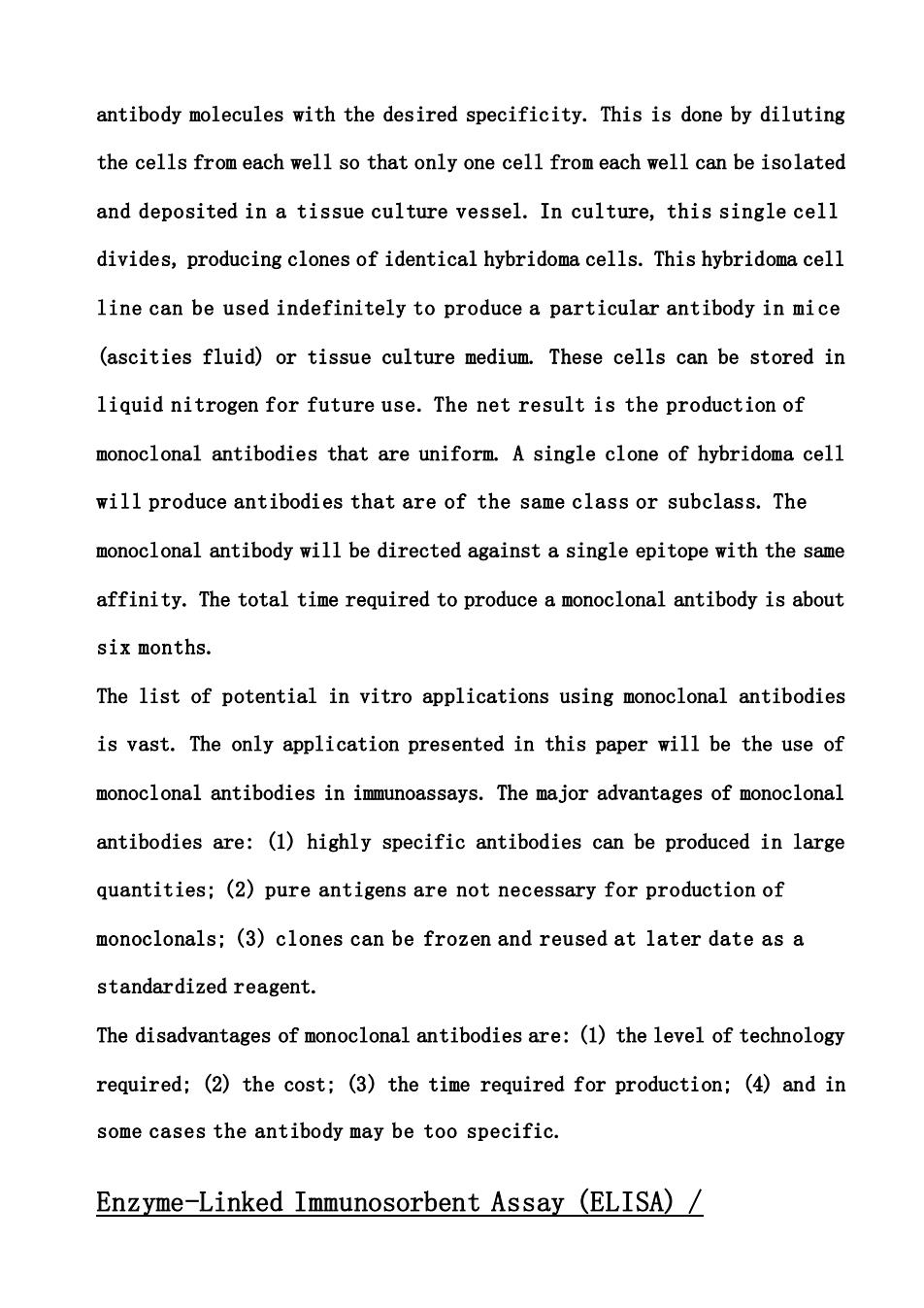正在加载图片...

antibody molecules with the desired specificity.This is done by diluting the cells from each well so that only one cell from each well can be isolated and deposited in a tissue culture vessel.In culture,this single cell divides,producing clones of identical hybridoma cells.This hybridoma cell line can be used indefinitely to produce a particular antibody in mice (ascities fluid)or tissue culture medium.These cells can be stored in liquid nitrogen for future use.The net result is the production of monoclonal antibodies that are uniform.A single clone of hybridoma cell will produce antibodies that are of the same class or subclass.The monoclonal antibody will be directed against a single epitope with the same affinity.The total time required to produce a monoclonal antibody is about six months. The list of potential in vitro applications using monoclonal antibodies is vast.The only application presented in this paper will be the use of monoclonal antibodies in immunoassays.The major advantages of monoclonal antibodies are:(1)highly specific antibodies can be produced in large quantities;(2)pure antigens are not necessary for production of monoclonals;(3)clones can be frozen and reused at later date as a standardized reagent. The disadvantages of monoclonal antibodies are:(1)the level of technology required;(2)the cost;(3)the time required for production;(4)and in some cases the antibody may be too specific. Enzyme-Linked Immunosorbent Assay (ELISA)/ antibody molecules with the desired specificity. This is done by diluting the cells from each well so that only one cell from each well can be isolated and deposited in a tissue culture vessel. In culture, this single cell divides, producing clones of identical hybridoma cells. This hybridoma cell line can be used indefinitely to produce a particular antibody in mice (ascities fluid) or tissue culture medium. These cells can be stored in liquid nitrogen for future use. The net result is the production of monoclonal antibodies that are uniform. A single clone of hybridoma cell will produce antibodies that are of the same class or subclass. The monoclonal antibody will be directed against a single epitope with the same affinity. The total time required to produce a monoclonal antibody is about six months. The list of potential in vitro applications using monoclonal antibodies is vast. The only application presented in this paper will be the use of monoclonal antibodies in immunoassays. The major advantages of monoclonal antibodies are: (1) highly specific antibodies can be produced in large quantities; (2) pure antigens are not necessary for production of monoclonals; (3) clones can be frozen and reused at later date as a standardized reagent. The disadvantages of monoclonal antibodies are: (1) the level of technology required; (2) the cost; (3) the time required for production; (4) and in some cases the antibody may be too specific. Enzyme-Linked Immunosorbent Assay (ELISA) /